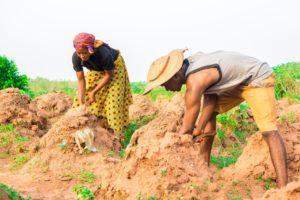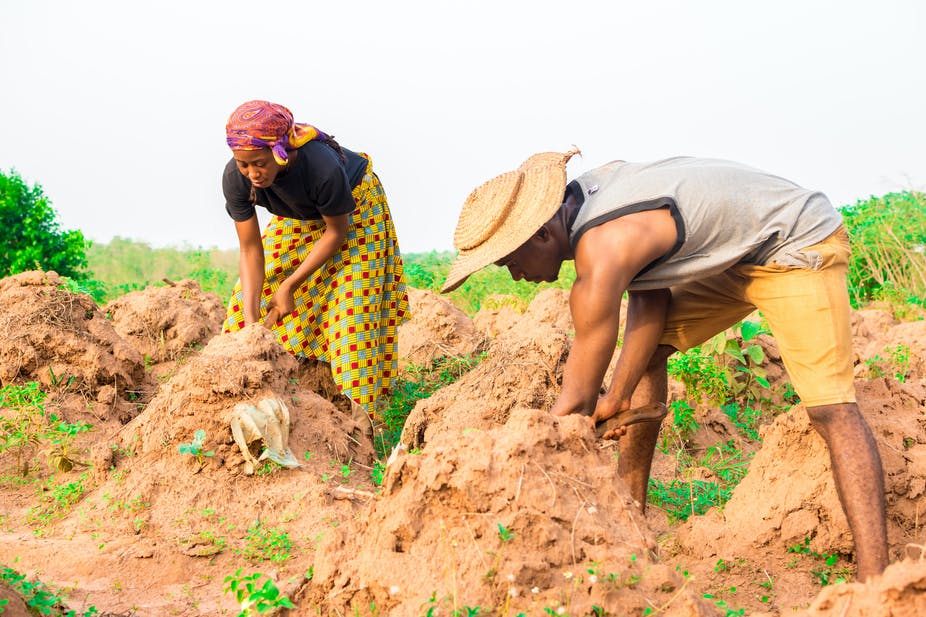
Abidjan, Ivory Coast// — Agricultural experts attending the 6th edition of the Africa Resilience Forum (https://apo-opa.co/4h4wohb), held in Abidjan from 1–3 October, have urged African governments to place greater value on farmers — transforming them from recipients of food aid into providers.
“Agriculture is a dominant activity in crisis zones. And we are told that without peace, there can be no development. But without food, there is no peace. It’s time to involve farmers in discussions on agriculture. Very often, policies are drawn up without the farmers. We need to reach out to them and discuss solutions that concern them,” said Roland Fomundam, CEO of Greenhouse Ventures, a Cameroonian company specialising in greenhouse production.
Beth Bechdol, Deputy Director-General of the Food and Agriculture Organisation of the United Nations (FAO) echoed this view: “Farmers are the private sector. They invest; they find solutions. We need to do better together. If we want to have a better impact on our populations, we need new matrices. For example, knowing how much we’ve improved producers’ incomes over a period of time.”
Both were speaking during a panel discussion titled “Achieving resilient and transformative impact for large-scale food security in Africa” on the Forum’s second day.
Also on the panel were Abdilhakim Yusuf Ali Ainte, Director of the Food Security and Climate Department in the Office of the Prime Minister of the Federal Government of Somalia; Martin Fregene, Director of the Agriculture and Agribusiness Department of the African Development Bank Group; Rania Dagash-Kamara, Deputy Executive Director for Partnerships and Resource Mobilization of the World Food Programme; and Felista Nyakio, an agripreneur from Kenya.
Drawing on Somalia’s experience, Ainte noted that Somalia had relied on its private sector, mobilising $6 billion, to boost its human capital and save lives. “The most important resource is the private sector. We need a dynamic private sector invited around the table to provide sustainable solutions,” he declared.
Martin Fregene emphasized that rebuilding Africa’s food systems does not require reinventing the wheel.
“Above all, we need to build on the existing production system. Small and medium-sized enterprises produce all the food we eat. We need to see how we can get them to double their production and ensure their survival,” he declared.
He pointed out that the Bank Group involves agricultural producers in the implementation of its agricultural program through direct financing, support for innovation, development of climate-resilient infrastructure and facilitating their access to agricultural inputs. The Bank also focuses on training, extension and networking for farmers, he added.
Felista Nyakio called for a change in perception towards the farming world. “Farming is perceived as degrading work. We need to start showing farmers that they are part of the nation and make children aware of the benefits of farming. Let’s get children to love agriculture,” she said.
The sixth edition of the African Resilience Forum (ARF), organised by the African Development Bank Group on the theme of “Prevention for better action: financing peace in a context of development cooperation in transition”, is a high-level event bringing together policy-makers and practitioners from the humanitarian-development-peace nexus.
The forum provides an opportunity to explore strategies for intensifying prevention efforts and stimulating peace-promoting investments on the continent.


